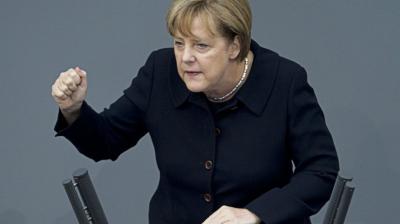
The Austrian presidential election brought the message straight home. The centre seems to be breaking up. Even though a respectable Green outpaced an energetic right-wing populist by the slimmest of margins, the outcome left no doubt about its symbolism. The Socialist and Christian Democratic parties, the traditional contenders for power in Austria, found themselves sidelined. And the populist right has moved into the heart of the political system. Successive crises have prepared the electoral ground for its message, which, both externally and domestically, is nationalistic and socially defensive.
Is Austria an exception in its apparent double rejection of Muslim immigration and European integration? Or are we dealing with a broader phenomenon? Yes and no. Clearly quite a few European countries are currently witnessing a rise of discontent, which is finding expression on the margins of the political system. (In fact, the current primaries in the US seem to present a similar picture in America.) The more ‘established’ parties find themselves severely challenged and under pressure. Most of this is coming from the right: the Front National in France, the Alternative für Deutschland in Germany and the Party for Law and Justice in Poland are just very visible examples. But Spain, Italy and even France show that today’s resentment is not the monopoly of the far right; it is also occurring on the left of the spectrum. So far, however, it is only in Austria - and previously in Greece and Central & Eastern Europe - that these movements are on the verge of toppling the traditional balance of power.
Are there common causes for this revolutionary unrest? Of course, local circumstances play a role, and there are also age differences between these protest movements. But generally there appear to be several new lines of conflict that are emerging all over Europe and managing to overshadow the left-right conflict that is institutionalised in most countries’ political systems. Not that right and left have disappeared as distinctive categories, but circumstances have propelled them into new guises. These new juxtapositions appear to result from the dynamic of globalisation. The financial crisis of 2008 symbolised unleashed capitalism, with its deeply undermining effects on employment, social security and a sustainable welfare state. The euro crisis of 2010 prescribed the painful recipe of budget discipline and structural adjustment to keep the common European currency afloat. Modernisation of socioeconomic systems seemed to be inescapable for both the left and the right, helping to blur their distinctive traits. ‘Grand coalitions’ between parties of the right and the left, such as those assembled in countries like Germany, Austria and the Netherlands, although not unsuccessful in their political management, accentuated this fading of ideological differences. Immigration, with its threatening effects on low-skilled labour and social entitlements, added to this development and helped create new political conflicts.
What will be the effects of this erosion of the political ‘centre’? Again, national differences can play a decisive role, for example between Germany and France. But, certainly in the short run, right-wing populist movements can be expected to continue encroaching on the power position of the centre parties. They will do this both by using the existing representative democratic system and by advocating referendums and other forms of ‘direct democracy’. They may be successful in this, even managing to create ‘illiberal democracies’, such as those that have already come into existence in some new EU member states. In response, the established parties will either try to isolate these movements in a powerless ‘quarantine’ or, alternatively, co-opt them into government coalitions and thereby seek to neutralise their electoral attraction. Mobilising the ‘democratic majority’ against the populists or making them part of the ‘system’ could be viable defensive options for the centre parties.
In the longer run it would, however, be more sensible to take people’s concerns and resentments seriously and give them a feasible political expression. This may cause traditional distinctions between left and right to reappear and require realignments on both sides of the political system. The same would need to be achieved within the EU, through enhanced democratisation of Europe.


